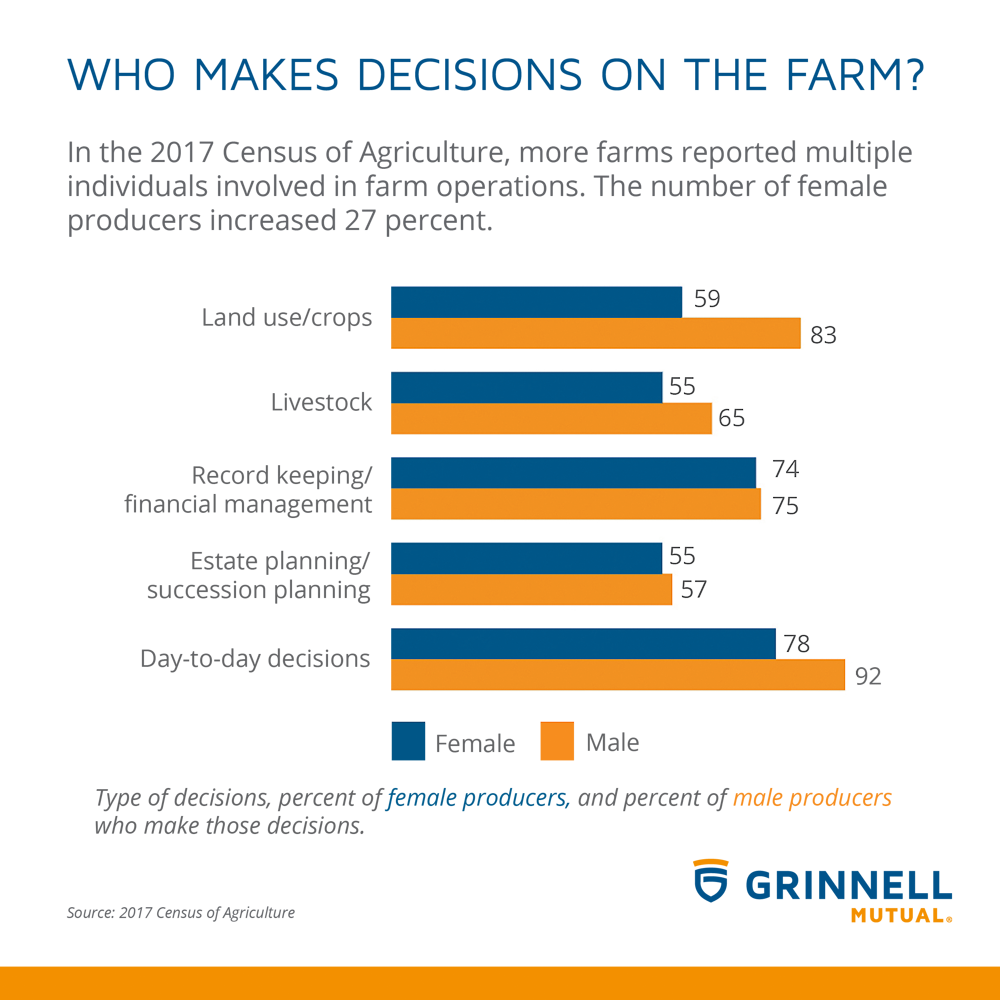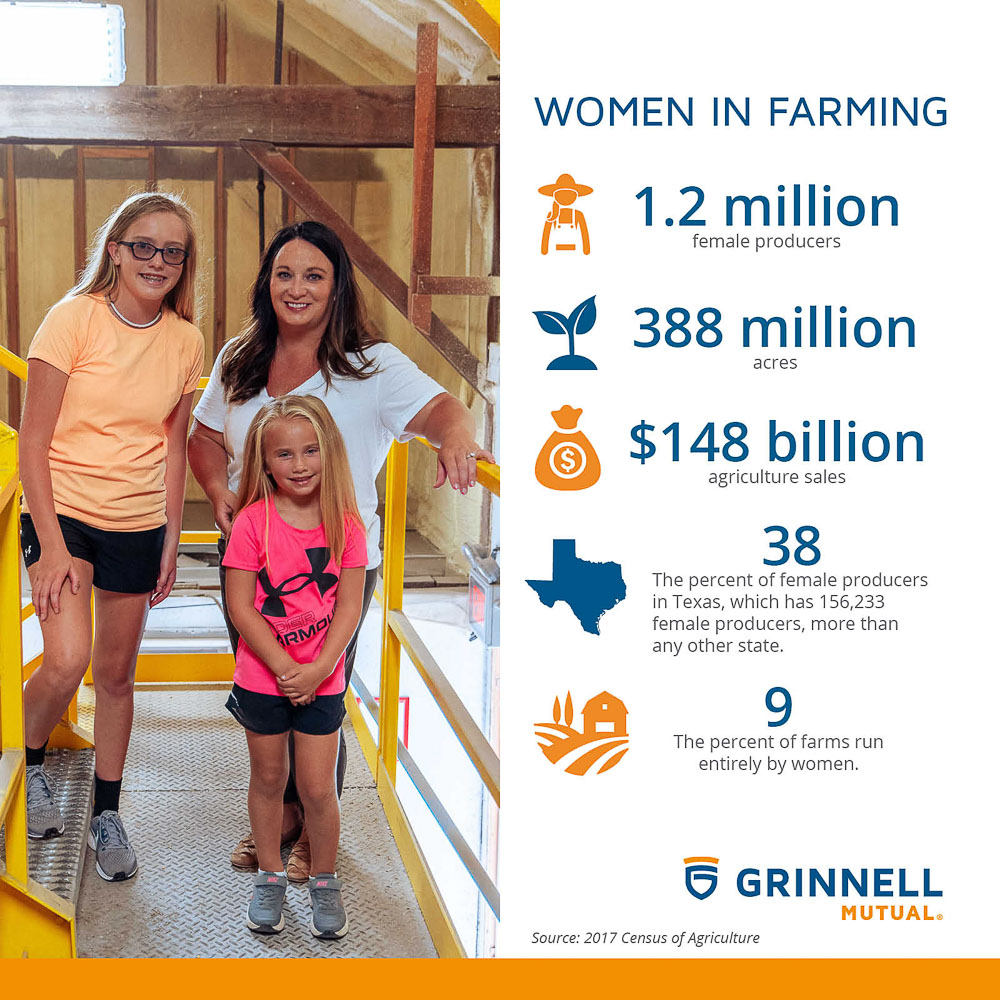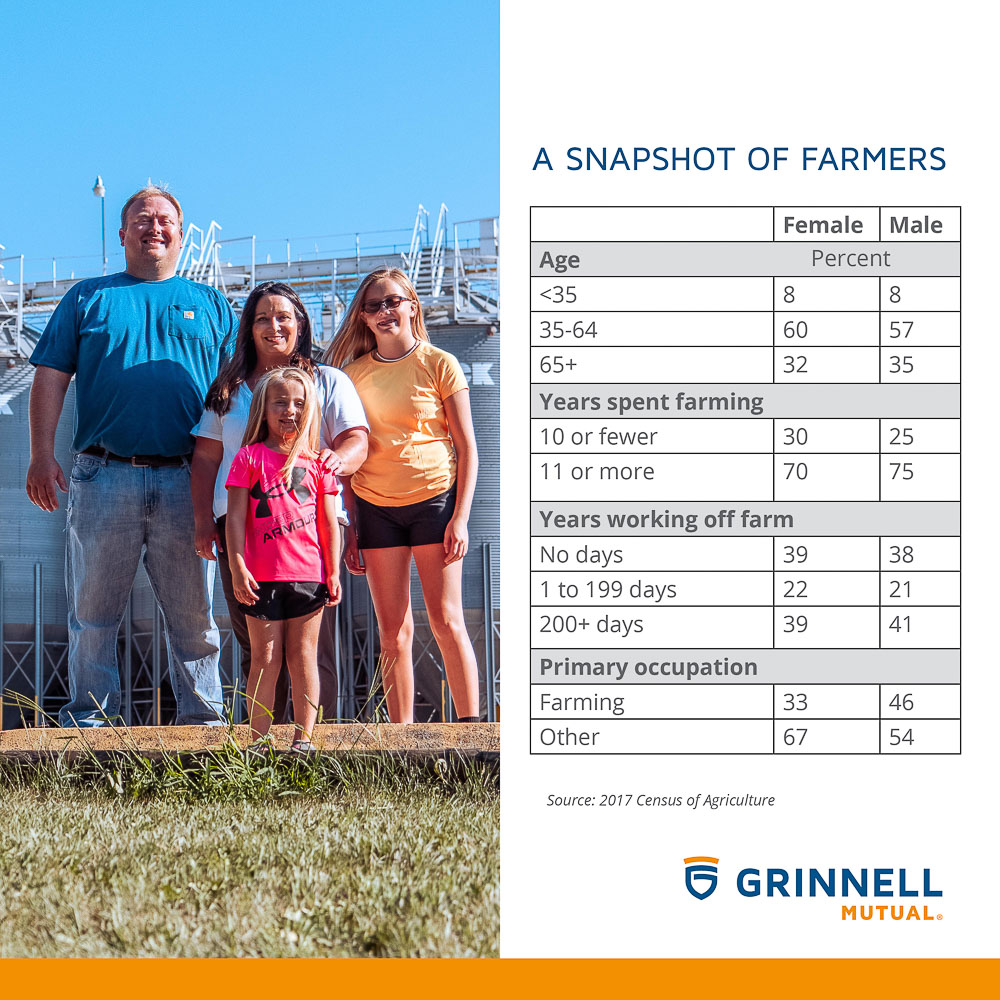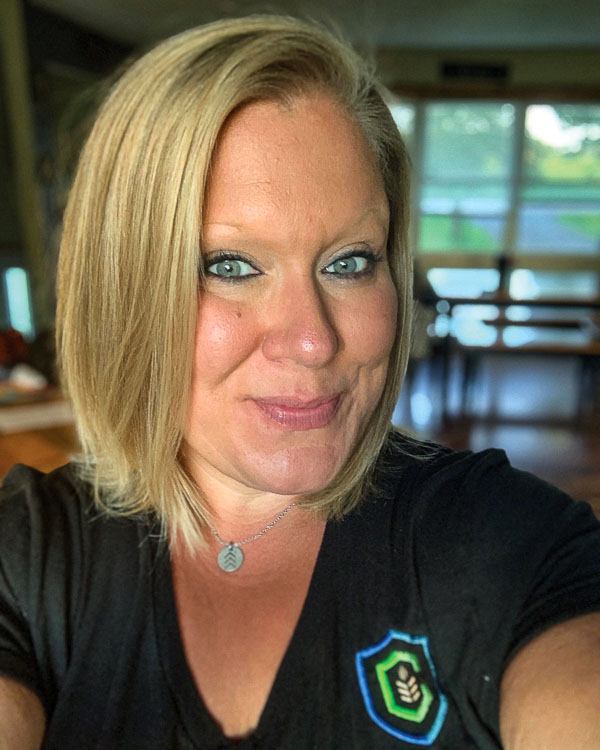Women in farming
In 2019, more than a third of U.S. farms were owned or co-owned by a woman, according to American Farmland Trust. And that number is only projected to grow.
Anecdotally, it’s clear that women play a large part in a farm’s success, but their role can be hard to quantify since much of the work is unpaid, from child-rearing to field support to bookkeeping. In fact, women were not officially allowed into the National Future Farmers of America (FFA) organization until 1969.

Meet Tarin Tiefenthaler
Tarin Tiefenthaler has farmed with her husband Ryan for over 10 years in Carroll, Iowa. Together they grow soybeans, rye, and corn, and raise hogs. The couple also owns their own soybean processing facility, which is on-site, and Tarin Tiefenthaler is an active member of the Iowa Soybean Association as part of their Communications Squad and District Advisory Council.

When Tiefenthaler’s husband began to farm, she decided to quit her job in Carroll to help him out on the farm. Growing up with a truck-driver dad who worked closely with farmers helped her understand how things worked on a farm and made her more familiar with big machinery.
Initially, she began helping with bookkeeping and record-keeping, then learned how to drive tractors and operate the larger machinery, an experience that empowered Tiefenthaler both as a woman and a mother. “I felt like I could do anything,” she said. “People don’t expect this little girl to jump out of the tractor. Having my daughters in the tractor with me was great exposure to the farm for them!”
Tiefenthaler enjoys working on the farm because it allows her to spend time with her husband. “We’d farm, then go home and put the kids to bed then go back out to the field late at night. We’d be in two different vehicles, but we have our best talks at night. You come up with life plans at that time of night — things you thought were a good idea but really weren’t the next day,” she laughed. “The plans were anything from changing our health insurance, to remodeling the hog buildings, to where we should go on vacation.”

Meet Angie Setzer
 Angie Setzer, a grain-marketing specialist, entrepreneur, and Market to Market analyst based in Charlotte, Mich., has over 16 years of experience in the grain industry. In her previous role as the vice president of grain at Citizens Elevator, Setzer earned the nickname “Goddess of Grain,” which originally began as a Twitter joke but became more apt as her presence and expertise on the business side of the grain industry grew.
Angie Setzer, a grain-marketing specialist, entrepreneur, and Market to Market analyst based in Charlotte, Mich., has over 16 years of experience in the grain industry. In her previous role as the vice president of grain at Citizens Elevator, Setzer earned the nickname “Goddess of Grain,” which originally began as a Twitter joke but became more apt as her presence and expertise on the business side of the grain industry grew.
Now with over 28,000 Twitter followers, Setzer is part of the Agricultural Speakers Network and has been seen on “AgDay,” “U.S. Farm Report,” “GrainWaves,” and “AgriTalk.”
She now works with ConsusROI, a startup that helps small to medium-sized grain farms protect themselves from consolidation with strategic insights and consulting. Setzer grew up on a potato farm but did not go to school for agriculture. She originally studied English in college but decided to go into sales after realizing the potential she had in the field. She responded to an ad in a newspaper, which got her started in her first field sales job as an assistant at a cash grain-brokerage firm, where she spent six years learning the business.
“When I started 16 years ago, there were probably two or three other women in similar positions and some people were absolutely shocked. There was one person in particular who said they would never work with a female.”
Setzer said that while being a woman in the industry meant she had to work more to prove herself, there were some benefits that came with being in a male-dominated industry. “I communicate differently,” she said. “Some men really appreciate having someone that they can talk to. They may feel a little bit more comfortable when it comes to sharing some of their concerns about the decisions that they’re making.
“I think there are a lot of women like me who quietly buckle down and do their job, and you don’t hear about them nearly as much as the men in charge of elevators and running the show.”
Setzer said that it’s important for women to share their stories and to continue to let people know about the roles women have in the industry. “One of my biggest desires is to empower some of these women that may otherwise get lost in the shuffle because intentionally or not, there are still times where they aren’t invited to sit at the table,” she said.
To offer support to women farmers
Setzer recommends educating girls while they’re in high school and college about all the different opportunities in agriculture. “I really think it would be great to show them what we do on a day-to-day basis and let them explore and find out what they enjoy.”
She also spoke about the power of mentorship. “It’s super important for anyone with industry experience to reach out and provide that sounding board or advice to younger women, especially in a male-dominated field.”
Read about women and farm safety Give our farm insurance a check Find an agent